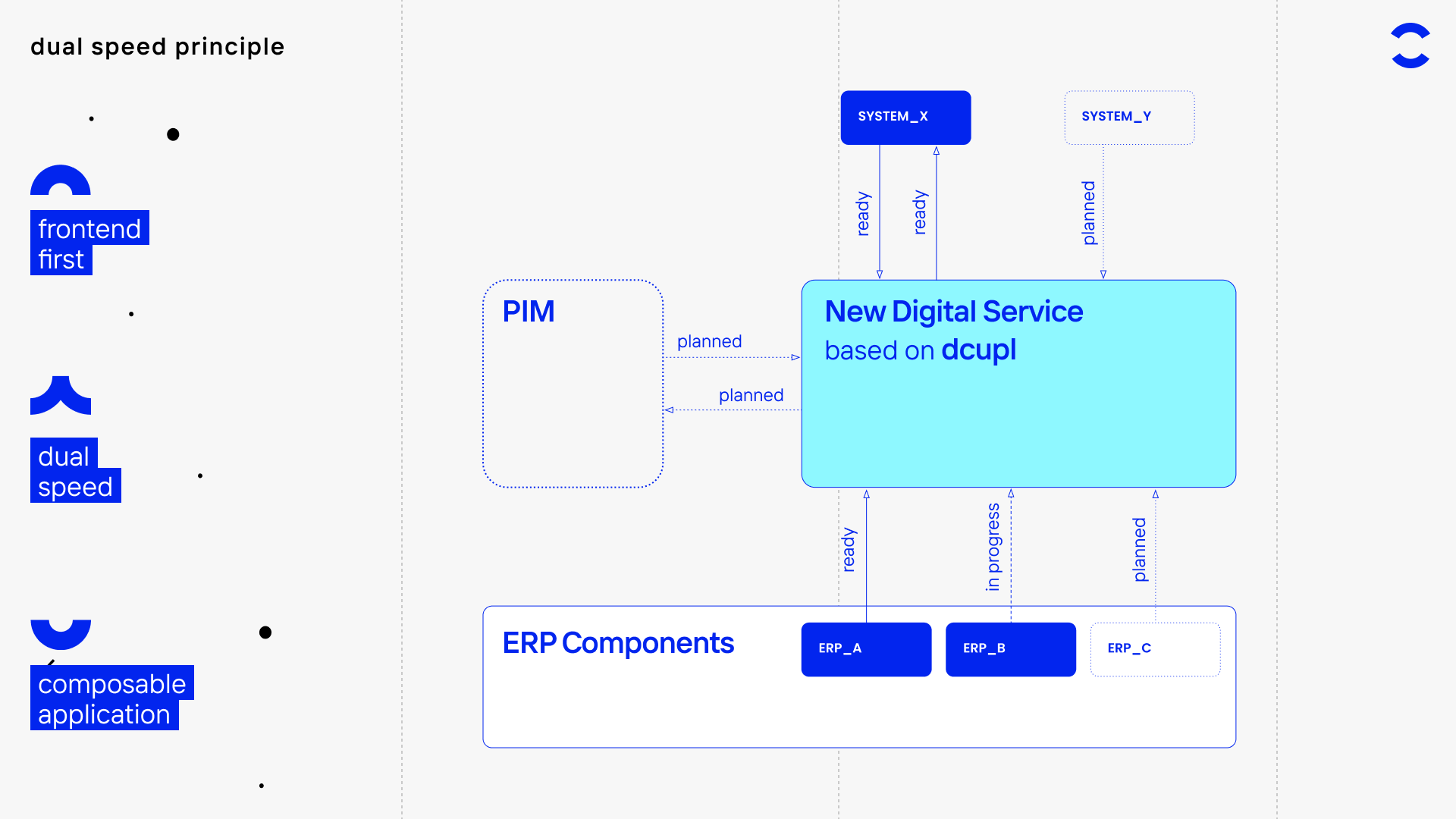The Problem with Missing APIs
First and foremost, it's crucial to understand that the absence of a fully functional API should never bring your frontend development to a standstill. Time is of the essence, and waiting for the backend to catch up can be counterproductive. In an ideal scenario your your development teams can work in parallel and don't depend on each other.

Tap into static system exports
Consider this: nearly every halfway decent ERP (Enterprise Resource Planning) system out there provides a means to export data in widely accepted formats such as CSV or JSON. These exports contain valuable data that can serve as the foundation for your frontend application.
Process, Map, and Filter Data
Once you've obtained these CSV or JSON files, the next step is to process, map, and filter the data to align it with your application's specific requirements. This step allows you to shape the data according to your needs, making it ready for consumption by your frontend components.
Get Started Right Away
Now, armed with processed data, you can start developing your frontend. This means you don't have to wait for the backend to have a complete API in place. Frontend progress can continue in parallel with backend development.
Dual Speed Development: "Fake It Till You Make It"
This approach embodies the concept of dual-speed development. It means that while you're building the frontend, one of the backend developers can focus on creating a robust API that perfectly fits the data you're working with. In essence, you're "faking it till you make it."
Ensure Future Compatibility
A word of caution: when your application eventually goes "live," you must ensure that you don't have to redo your data structure. That's what dcupl models are made for.
dcupl Model Definitions and SDK The dcupl model definitions offer the vital contract between the frontend and backend components, ensuring seamless integration when everything comes together. What's more, the dcupl SDK doesn't discriminate between data loaded from an API or static files. To the SDK, it's all about handling resources containing JSON or CSV data.
Maintain Control Over Your Development
In conclusion, maintaining control over your development process is paramount. Always develop with data that you control, even if it originates from static exports. This approach allows you to retain independence and flexibility, ensuring that frontend development remains on track and adaptable to changing circumstances.
So, embrace the power of static exports, leverage dcupl model definitions, and continue pushing your frontend development forward, even when the API is still a work in progress. Keep control of your development process, and you'll be well-prepared for success when it's time to go "live." Happy coding!